Best semi-hollow guitars 2025: 10 killer semi-acoustics for all styles and abilities
Want that unmistakable semi-hollow sound? These guitars are the very best at every price point
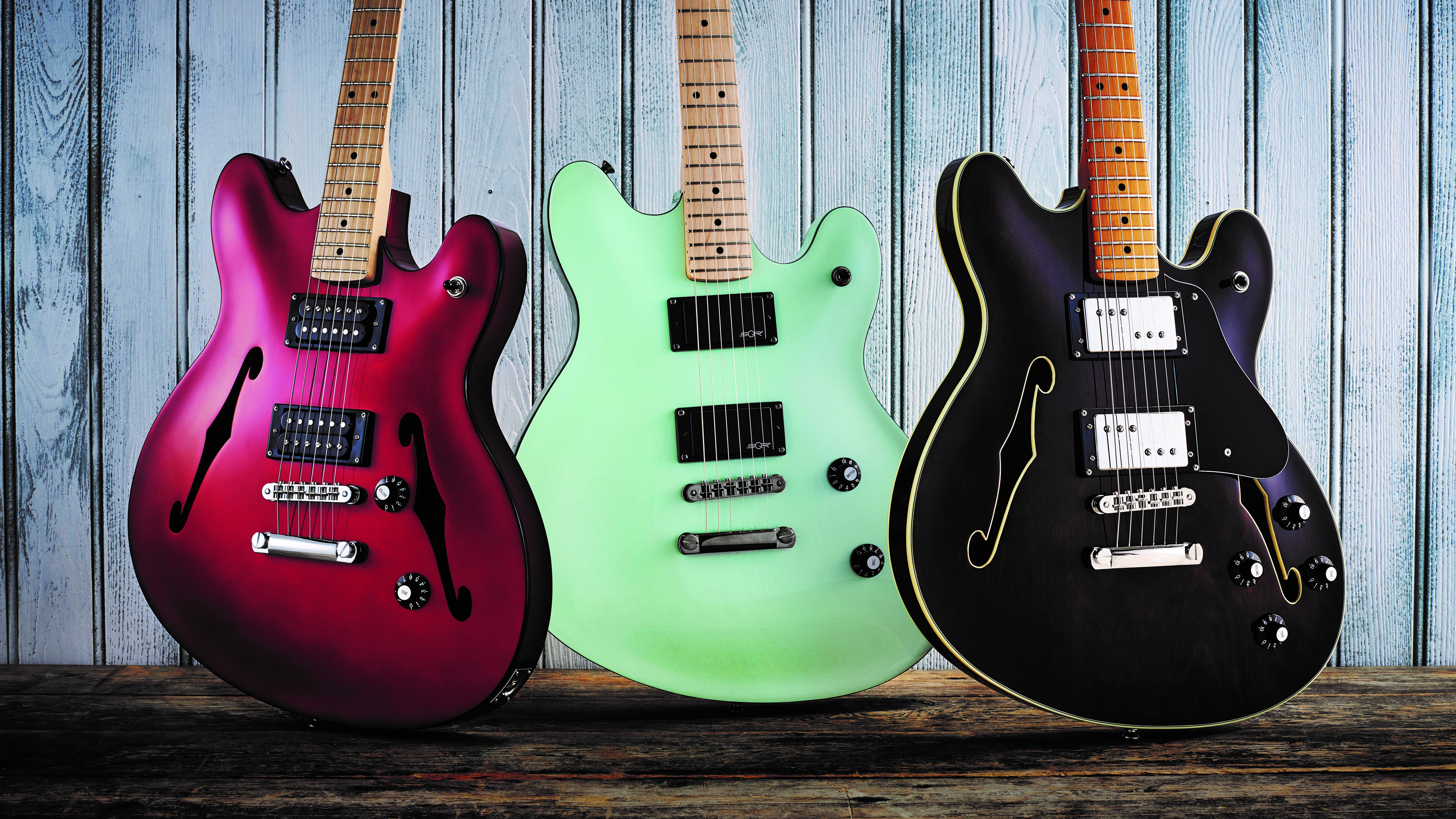
Owning one of the best semi-hollow guitars is something that every guitarist should do in their lifetime. There’s something about a semi-hollow guitar which screams sophistication and class - even if you play the world’s dirtiest riffs on one. Semi-hollow guitars have a set of characteristics which are impossible to recreate on any other guitar, and as a result, it's the type of guitar you should always keep in your collection, whether it’s for unplugged home noodling, that last-minute jazz gig call-up, or just because they look and sound beautiful.
The semi-hollow guitar became the axe of choice for many of the guitar world’s greatest players. B.B King, John Lennon, Chris Cornell, John Scofield - they’ve all employed the warm, open tones of the semi-hollow guitar to find their tonal nirvana - whether that means embracing the semi-hollow’s super clean and acoustic-like properties, or ramping up the gain to make it sing.
As you’d expect, these guitars blur the lines between old-school hollowbody electric guitars and solid-bodied alternatives, and it’s for this reason that they deliver such huge versatility when it comes to the tones you can coax out of one.
This guide is designed to help you find the very best semi-hollow guitar for you, regardless of your budget. We’ve included 10 options ranging from roughly $/£250 to £/$2,500, so you should find something to suit your needs and wants. They’ve been organised in price order, from low to high, to make your search a bit easier.
We’ve included some expert buying advice at the end of this guide, so if you’d like to read more about the best semi-hollow guitars and what to know before buying one, then click the link. If you’d rather just get to the products, then keep scrolling.
Best semi-hollow guitars: Our top picks
Choosing a set of top picks from this product list is tough. All of these guitars, in our opinion, are the best in their price categories - so you’ll be getting a top-tier guitar no matter your budget. We do have a few favourites, however.
If you’re working on a budget, then we’d 100% recommend you go for the Squier Classic Vibe Starcaster. Modelled on the Fender Starcaster of 1976, the Squier version brings you the trippy offset look and impressive Classic Vibe build quality with a tone to match, all for under $450/£400.
For intermediate players or those with a little more cash to splash, we’d suggest you go for either the Epiphone Sheraton-II Pro or the Fender Jim Adkins JA-90. If the ‘335’ vibe is what you’re after, then, in our opinion, there’s nothing better than the Sheraton under roughly $/£1,000. The JA-90 is a killer thinline Telecaster equipped with two P90s, and is the signature model of Jimmy Eat World’s Jim Adkins - meaning it can handle either end of the gain spectrum quite happily. You won’t get such a huge, open sound from it due to the body being smaller, but if you don’t play much clean stuff, then this guitar is a great choice.
For those who are either pro players or just have much larger budgets, then we’d point you towards either the Yamaha SA2200 or the Strandberg Salen Jazz NX. The SA2200 is perfect for those who prefer traditional specs, and with Yamaha build-quality and attention to detail being some of the best in the business, the SA2200 outperforms any other readily available, off-the-shelf competition. The Strandberg Salen, while being a totally left-field choice, is arguably the perfect semi-hollow electric guitar for the modern guitarist. It’ll still do all the classic old-school jazz and blues tones, but its true capabilities go way beyond those of any other semi-hollow guitar.
Best semi-hollow guitars: Product guide
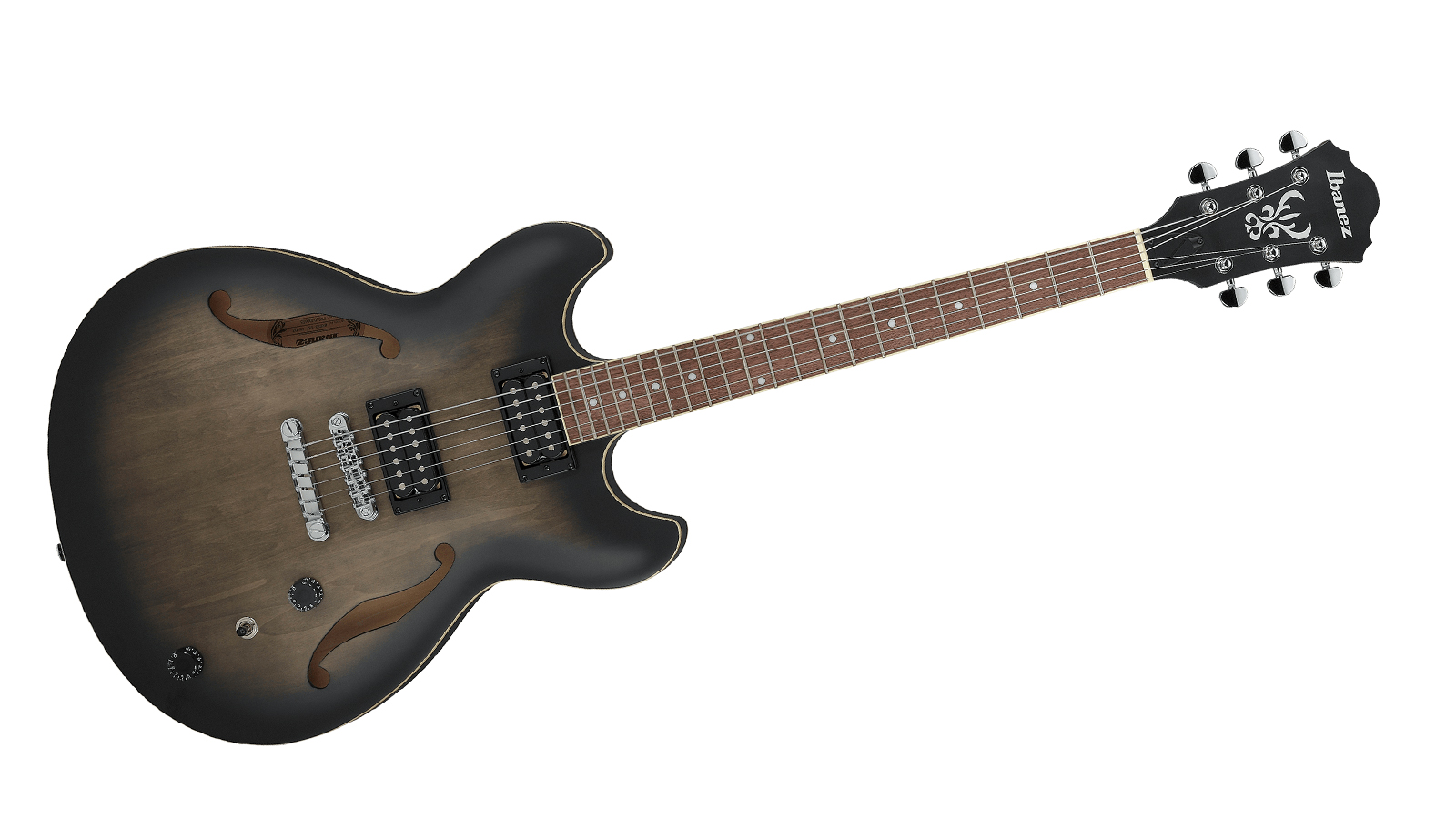
1. Ibanez AS53-TKF Artcore
Our expert review:
Specifications
Reasons to buy
Reasons to avoid
When it comes to semi-hollow electric guitars, Ibanez’s Artcore Series is one of the industry’s most popular. This particular model, the AS53, is the most affordable in the Artcore range, but the performance it delivers is far from cheap.
The body is made from sapele - a type of mahogany - and as such brings a warm, tasteful resonance into the fold. The neck is made from nyatoh, which is not only comfortable and aesthetically pleasing, but it also helps to deliver a slightly brighter, top-end ring. This combination of woods not only sounds exotic, but when combined, helps to provide a balanced tone that will help you in just about any musical context.
The pickups onboard are a pair of Ibanez’s own Infinity R ceramic humbuckers, which, for the money, can cover a surprising amount of ground with ease. The bridge pickup has an impressive amount of fight in it when paired with a gainy amp, and the neck pickup has a rich, creamy tone in both clean and distorted scenarios. Granted, you could spend another £/$100 and leapfrog into the next category of quality, but if your budget is strict, the AS53 is a great choice.
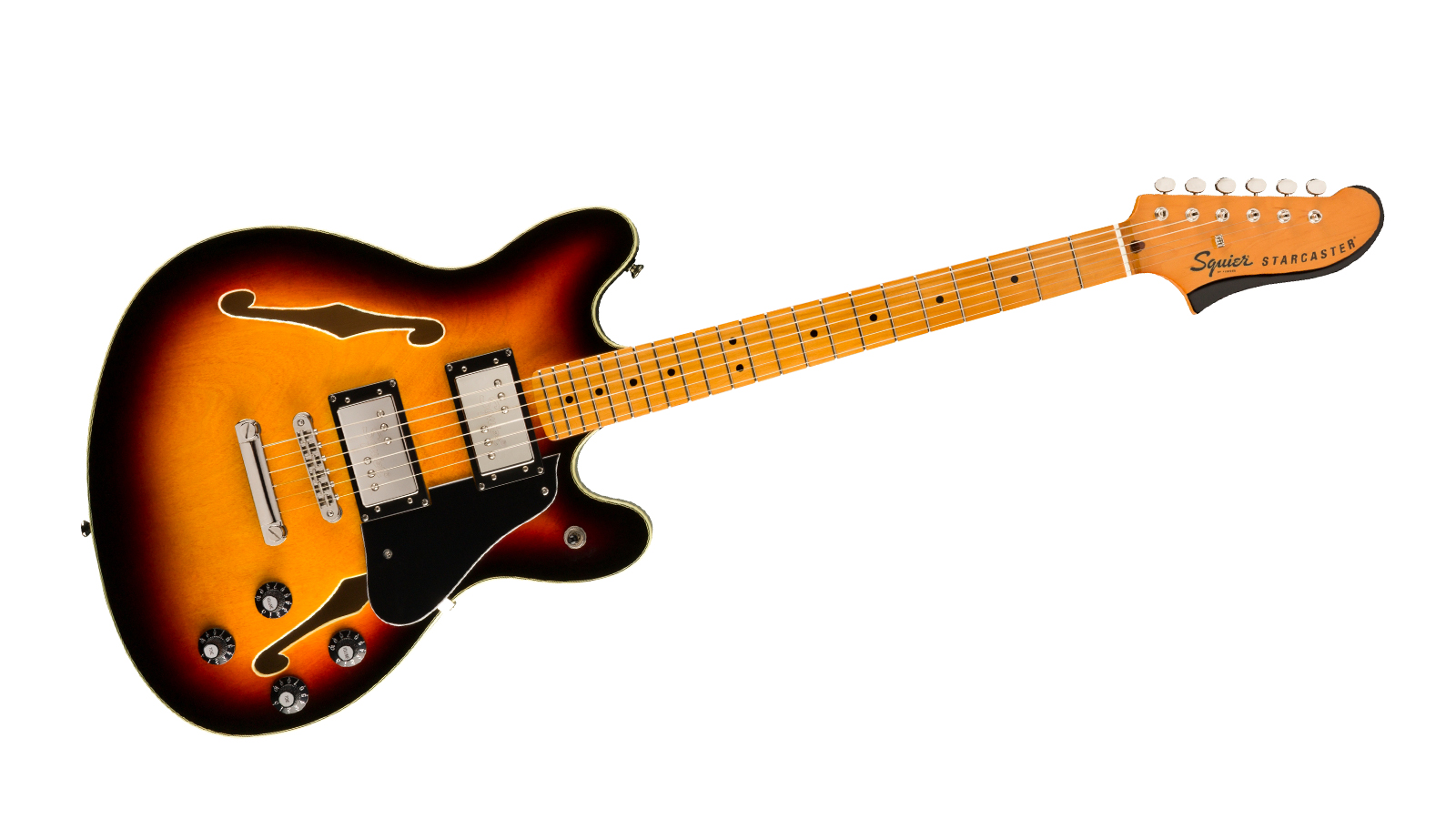
2. Squier Classic Vibe Starcaster
Our expert review:
Specifications
Reasons to buy
Reasons to avoid
The Fender Starcaster is one of the coolest looking semi-hollow guitars out there. Initially introduced in 1976 and made until 1980, the Starcaster proved divisive at the time. Having found popularity on the vintage and rare market in more recent years, it was reintroduced by Fender in 2013 - and Squier after that - enabling you to get a semi-hollow guitar full of ‘70s Fender vibe for less.
The Classic Vibe build quality is frankly incredible when you consider how much one of these guitars will set you back. Not only does the guitar feel solid and well built, but the level of finish is impressive too. The fret edges are tidy, the hardware is designed and engineered well and puts any ‘cheap hardware’ worries at ease, and the neck, while comfortable, is a handful. It’s not overly large or hard to manoeuvre around, but where some slim necks feel like they’re about to break, this one is reassuringly strong. The finishes on offer are virtually flawless, and the Walnut finish especially looks sophisticated and classy.
Now, there’s something about the combination of Wide Range humbuckers and a semi-hollow guitar that excites us. Wide Range humbuckers are designed to cover - you guessed it - a wide range of frequencies, and when you take this ‘open’ sound and implant it into an already huge sounding semi-hollow body, the tones you’ll get back will impress you no end. It’s a little frustrating that we can only get a maple fingerboard, as we think Laurel or Pau Ferro would look great and offer a slight tonal variation - but we’re being picky.
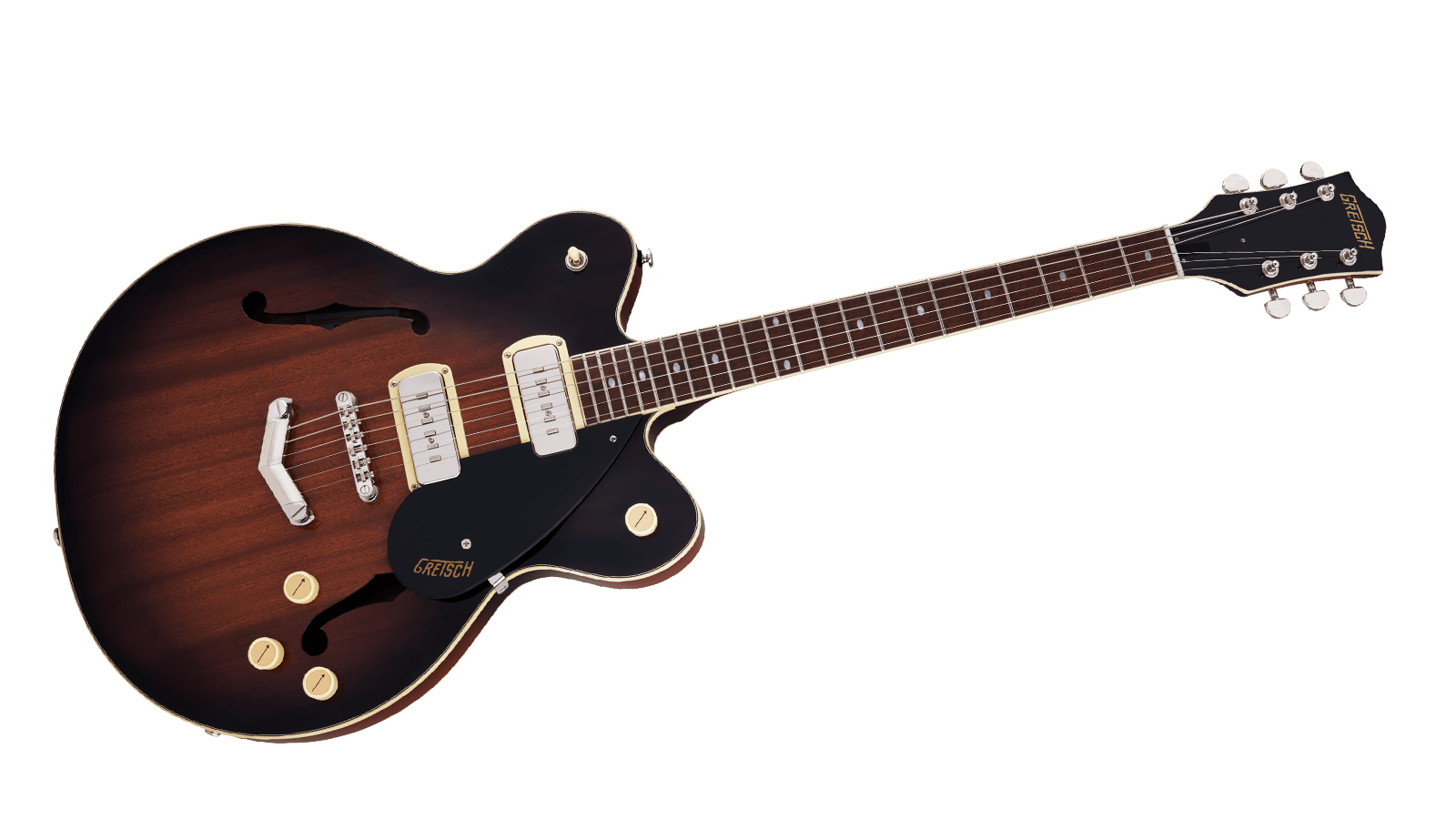
3. Gretsch G2622-P90 Streamliner
Our expert review:
Specifications
Reasons to buy
Reasons to avoid
Gretsch is undoubtedly one of the biggest brands when it comes to semi-hollow and fully hollow bodied guitars. Played most often by the kings and queens of country, rockabilly and rock ‘n’ roll, their semi-hollow Streamliner series brings the allure of the semi-hollow guitar to the more budget end of the scale.
The G2622-P90 is a pretty large-bodied semi-hollow guitar reminiscent of the ‘335’ style - but looks are where the comparisons stop. The Gretsch has a mahogany body and a neck made from nato, and when combined, they blend to create a tone which has plenty of depth and warmth - something which we love from a semi-hollow. The pickups, on the other hand, are shimmery-sounding P90s - large single coil pickups - which entertain a much brighter and more defined tone than a set of humbuckers. It’s worth noting that any single coil pickups are going to create some extra background noise, making this guitar a little more lively than others with the volume up.
Although the Streamliner range is one of Gretsch’s more affordable products, this guitar feels anything but cheap. The hardware is incredibly solid, with the ‘V’ stoptail both looking great and providing a strong, secure anchor point for your strings to vibrate through the top of the guitar. The tuners are well-made and offer a reassuring amount of resistance - and it’s this kind of attention to detail that makes us enjoy playing this guitar. It feels like it’s all about the playing experience, and none of the worries and woes we may accumulate through playing a cheaper instrument.
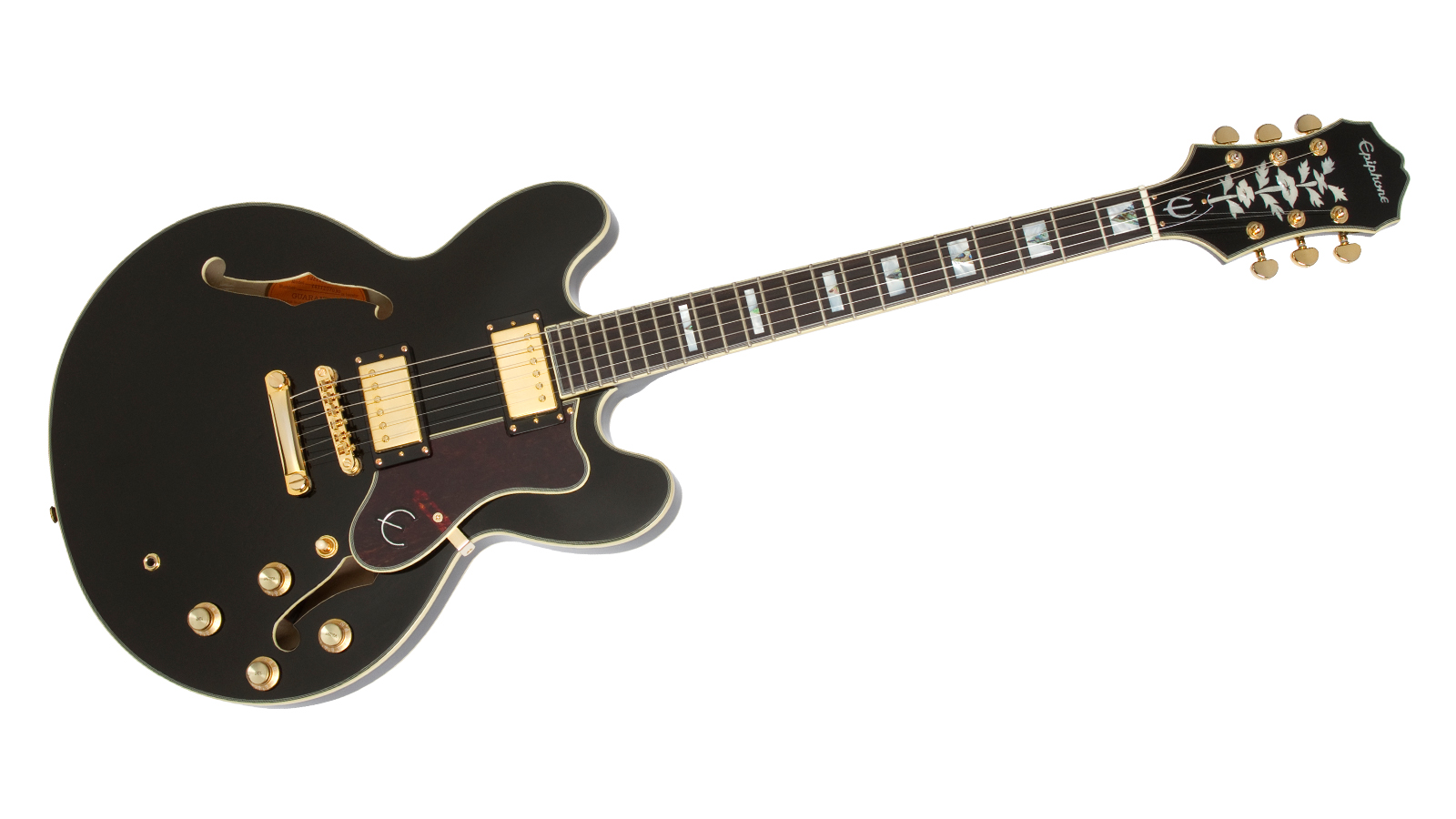
4. Epiphone Sheraton-II Pro
Our expert review:
Specifications
Reasons to buy
Reasons to avoid
The Epiphone Sheraton-II Pro is one of the finest Epiphone-designed guitars of all time, in our opinion. Having been played by the likes John Lee Hooker, Noel Gallagher, Emily Wolfe and The Edge, the Sheraton has plenty of pedigree - and we’d say there’s nothing that really does what the Sheraton does for under $/£1,000. Let’s take a look at it, then.
With a body made entirely of layered maple, and a 5pc neck made from maple and walnut, the Sheraton II Pro is a bright sounding, exceptionally resonant guitar. The sound characteristics of maple are bright, punchy and snappy, and it’s these characteristics, when combined with the inherent warmth and low-end of the Sheraton’s body size, which bring an impressive amount of clarity to the tone of this guitar. The ProBucker 2 and 3 pickups bring most of the tonal goods, with their coil-splitting capabilities really adding to the versatility of the Sheraton-II Pro.
The gold hardware not only adds a tasteful, sophisticated touch to this guitar, but the finishes on offer - as well as the level of finish - is genuinely exceptional. The ‘block and triangle’ fingerboard inlays and the ornate headstock inlay takes this guitar from good to great, and honestly, you’d have to try very hard to find something better than this for under a grand.
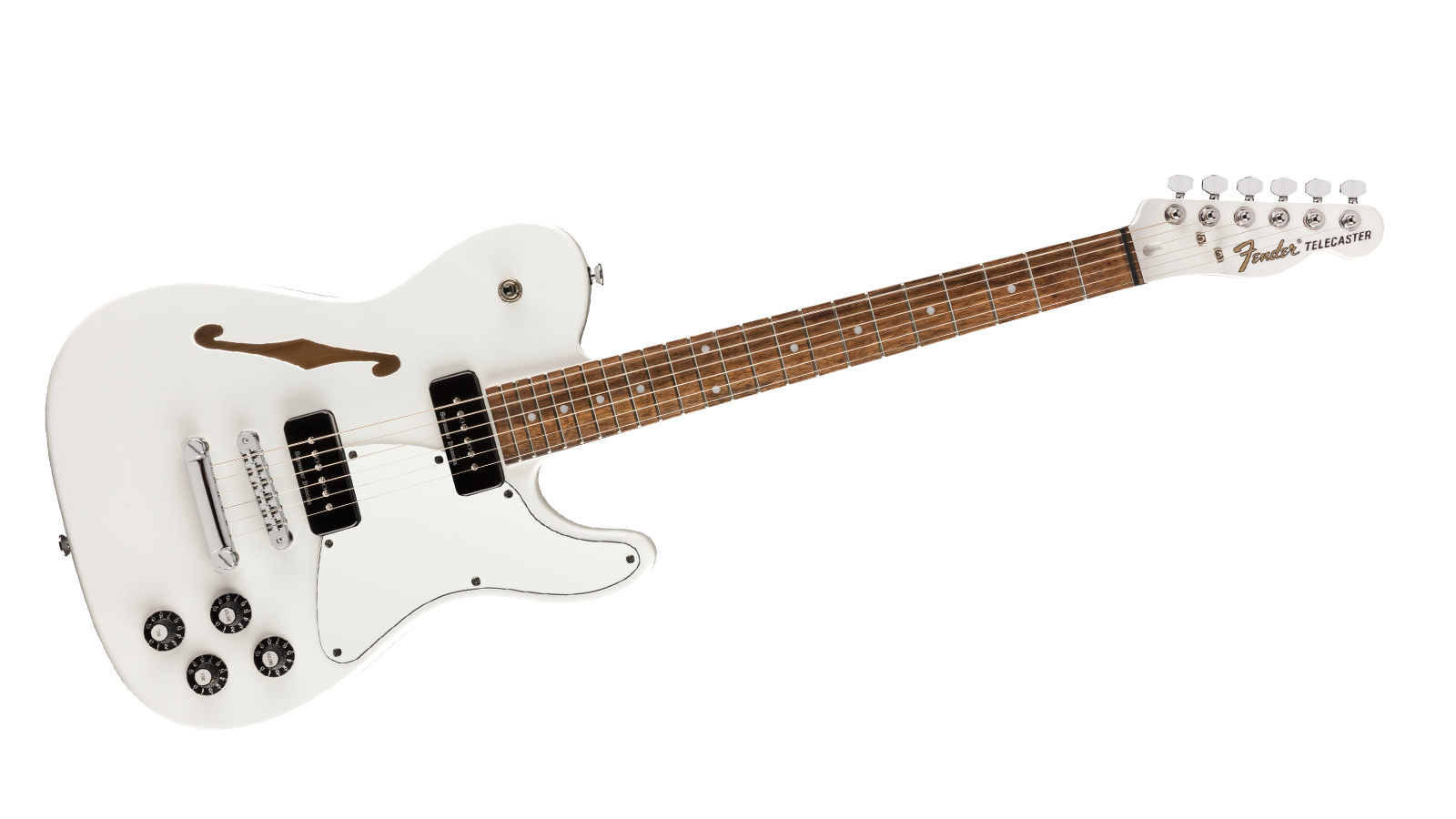
5. Fender Jim Adkins JA-90
Our expert review:
Specifications
Reasons to buy
Reasons to avoid
Although Fender has primarily made its name from the wide range of solidbody guitars on their product roster, the Thinline Telecaster has become a favourite with those who want some semi-hollow action, while keeping that name on the headstock.
The JA-90 is the signature model of Jimmy Eat World’s Jim Adkins, and while you may think that this guitar is just a pop punk machine, let us pleasantly surprise you. With a pair of Seymour Duncan P90s onboard - implanted in the semi-hollow ash body - the tone provided is bright and precise, with an impressive amount of low-end grunt. The Tele is not usually recognised for its tonal depth, but thanks to the semi-hollow construction, this Telecaster bucks the trend.
This Telecaster, with the positioning of the pickup selector, four volume/tone controls and the 24.75” scale has a bit of a ‘best of both worlds’ vibe to it - the bite and grunt of a Fender Tele, and the string tension and tweakabilty of a certain brand beginning with ‘G’. While this may not suit all Fender fans, this is a guitar which was born out of going against the norms.
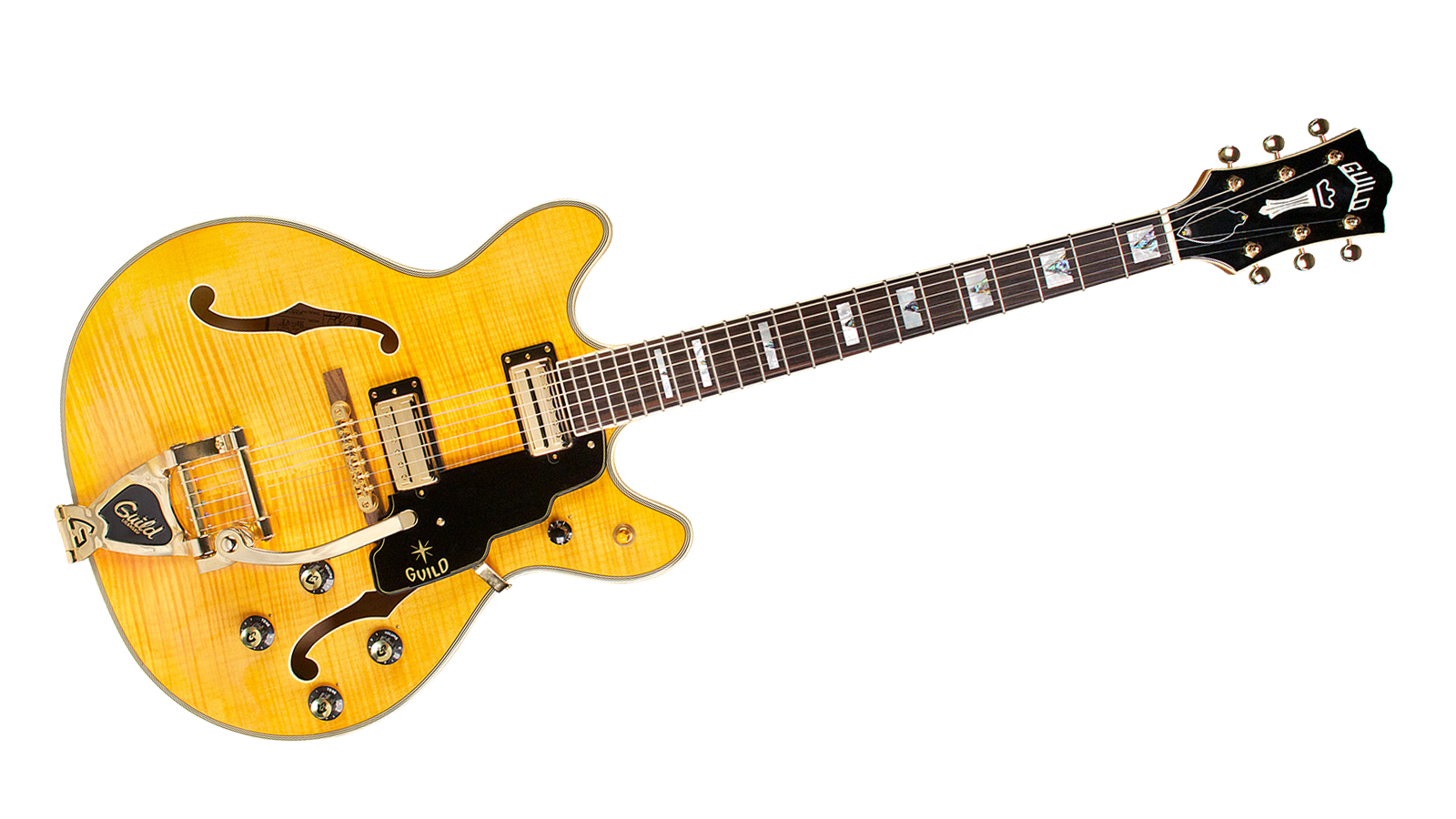
6. Guild Starfire VI
Our expert review:
Specifications
Reasons to buy
Reasons to avoid
Guild is one of those brands that has seemingly been around forever. Whether it’s their acoustics, solidbodies, fully hollow or semi-hollow guitars we’re raving about, we know that the quality of each instrument will be exceptional - and the Starfire VI is no exception to that rule.
The Starfire range from Guild provides huge helpings of ‘60s feel. The large, double-cutaway body is reminiscent to that of the ES335, and as such the playing experience is largely similar, but the AAA flamed maple body brings with it a sweet brightness. This brightness gets balanced out by the sheer size of the Starfire VI’s body - and with it, comes a warm, balanced tone. The 3pc maple/walnut neck with ebony ‘board offers an enjoyable, smooth and rewarding playing experience which is a dream, especially after a quick setup.
The pickups on the Starfire VI are worth a mention here, too. Originally designed in the 1960s, the LB-1 ‘Little Buckers’ were Guild’s answer to the single-coil, and they provide a jangly, hum-less tone which enables note clarity to be pushed to the fore. You’ll struggle to find that sometimes muddy, washed out neck pickup tone that happens with other semi-hollow guitars.
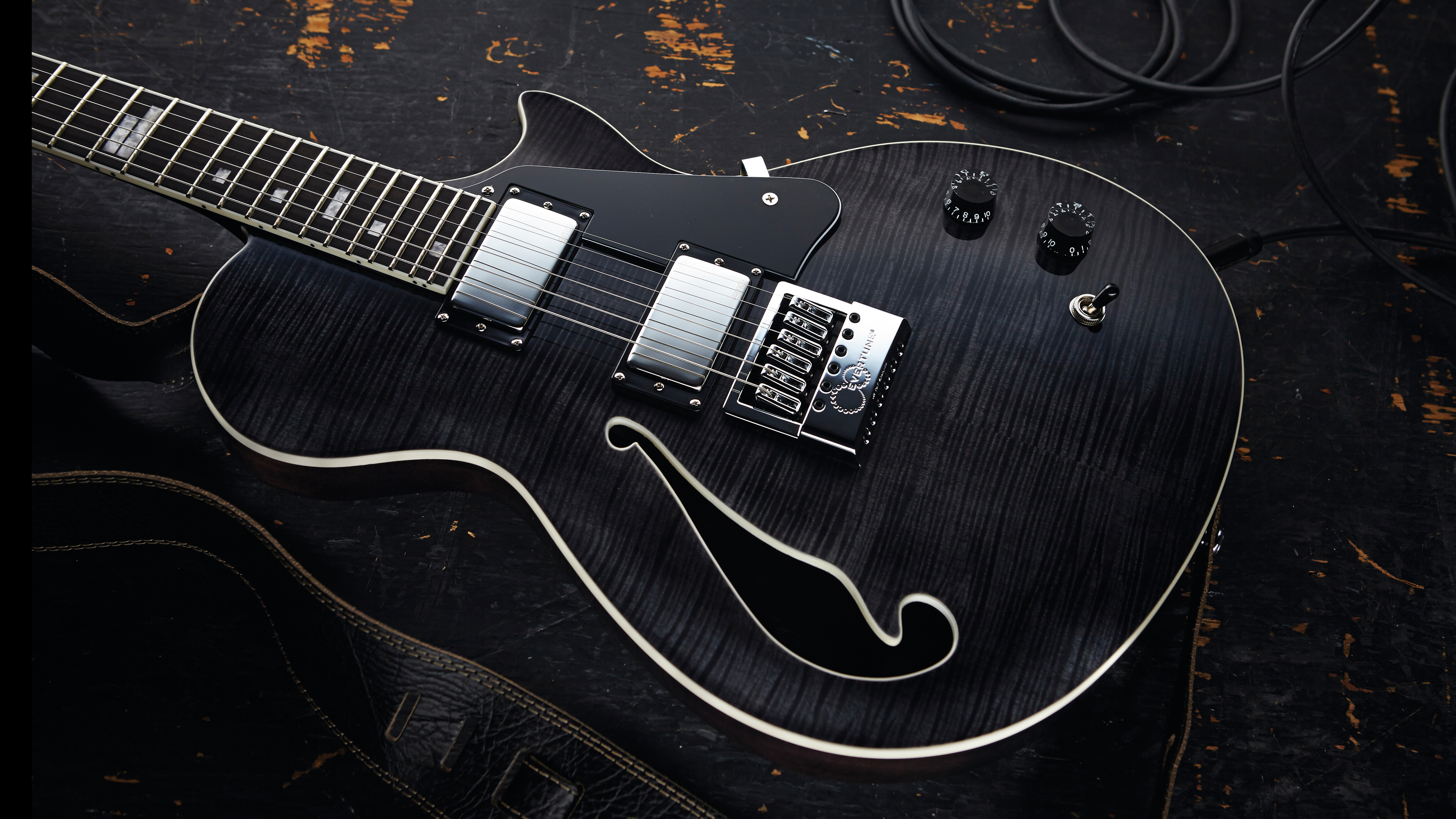
7. ESP LTD BW1
Our expert review:
Specifications
Reasons to buy
Reasons to avoid
If you’re familiar with Ben Weinman or either of his bands, you’ll know that the Dillinger Escape Plan and Suicidal Tendencies guitarist does some frankly ridiculous things with his guitar. In such extreme settings, it’s surprising that Weinman chose a semi-hollow guitar - but we’d use this for just about anything if we had one, too.
The LTD BW1 has a spec sheet to die for. The materials alone are spectacular, with the body made from resonant, rich mahogany, topped with a gorgeous flame maple cap. The neck is a 3-piece maple construction with an ebony fingerboard, and, when all combined, the BW1 produces one hell of a tone. The mahogany/maple combination is always a strong one when it comes to guitar building, as it ensures a great balance between warm and punchy tones. Topped off with a brace of Fishman Fluence Modern humbuckers which are coil-splittable, you’ll be coaxing all sorts of tones out of this guitar.
Aside from those factors, one of the BW1’s main selling points is the Evertune bridge. Offering a virtually indelible level of intonation and tuning accuracy, this unit is truly exceptional. Granted, it can feel a little unnerving until set up correctly for your playing, but once we had it sorted, we were away. A quick disclaimer - this guitar is not really suitable for those who prefer the more traditional aspects of life. This instrument has the potential to be both controllable and absolutely insane - but we’re happy to chance it for the opportunity to play one.
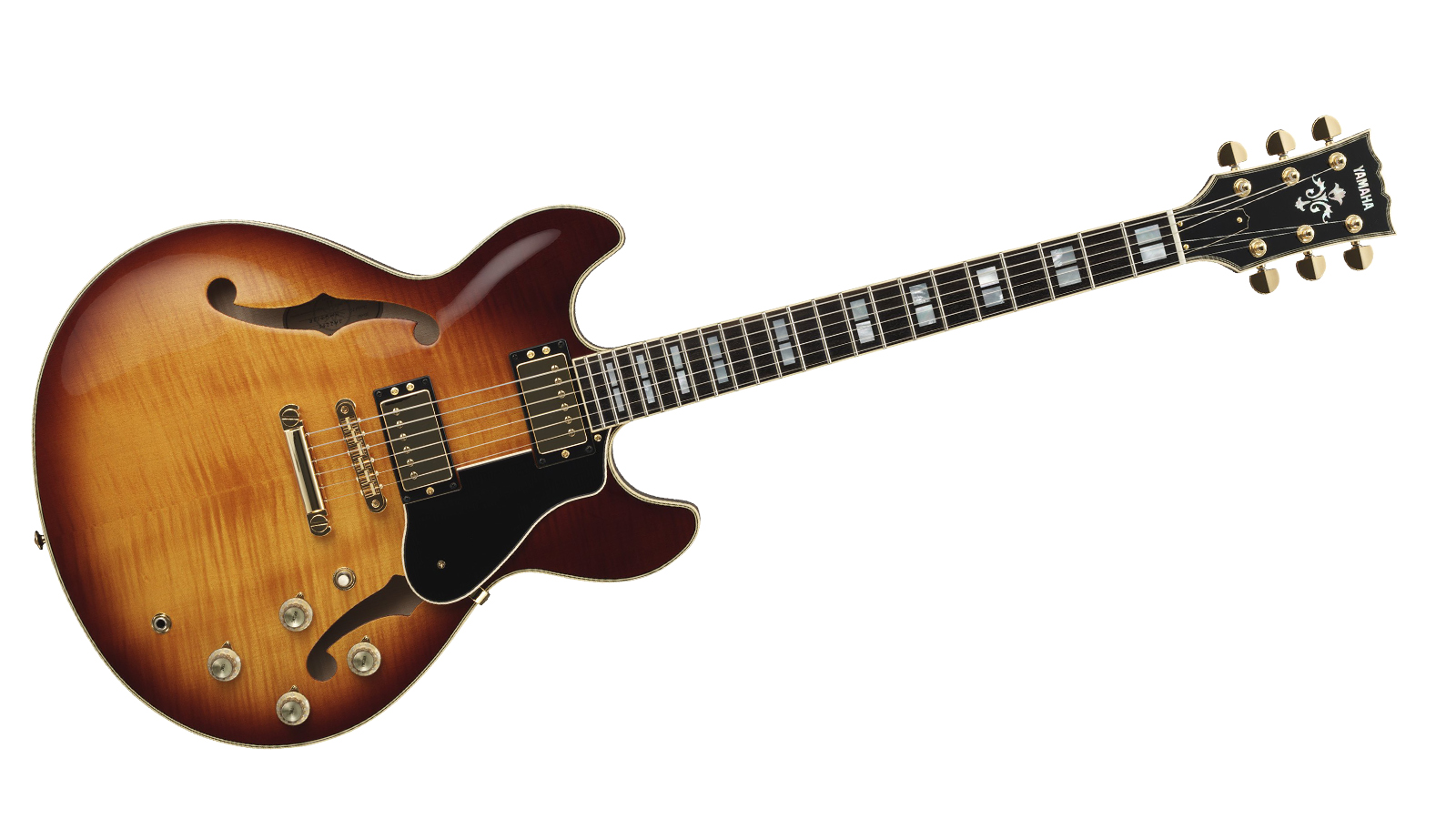
8. Yamaha SA2200
Our expert review:
Specifications
Reasons to buy
Reasons to avoid
Yamaha guitars have a reputation for being some of the best made instruments around. Yamaha build quality in all aspect of their company is nigh-on unbeatable, which fills us with hope when considering the SA2200 is a semi-hollow guitar sitting close to the $/£2,000 mark.
The laminated sycamore body is a welcome departure from the world of maple and mahogany - bringing a tone which is still rich in many different areas. It has depth, clarity and precision on another level to most semi-hollow guitars. An ebony fingerboard ramps up the warm tone, and helps to tone down some of the lively top end you may get here. The proprietary alnico pickups are designed to make the SA2200 as truly versatile as it can be, and when you consider the coil splits too? Well, this guitar really is well-made.
Our only criticism of Yamaha guitars is that they are made almost too well, in a sense. On the flipside, it’s their extra precision and ‘perfectness’ that makes them so incredible in the first place. The SA2200 does feel and sound a little bit clinical at times - but it instills bags of confidence in the player.
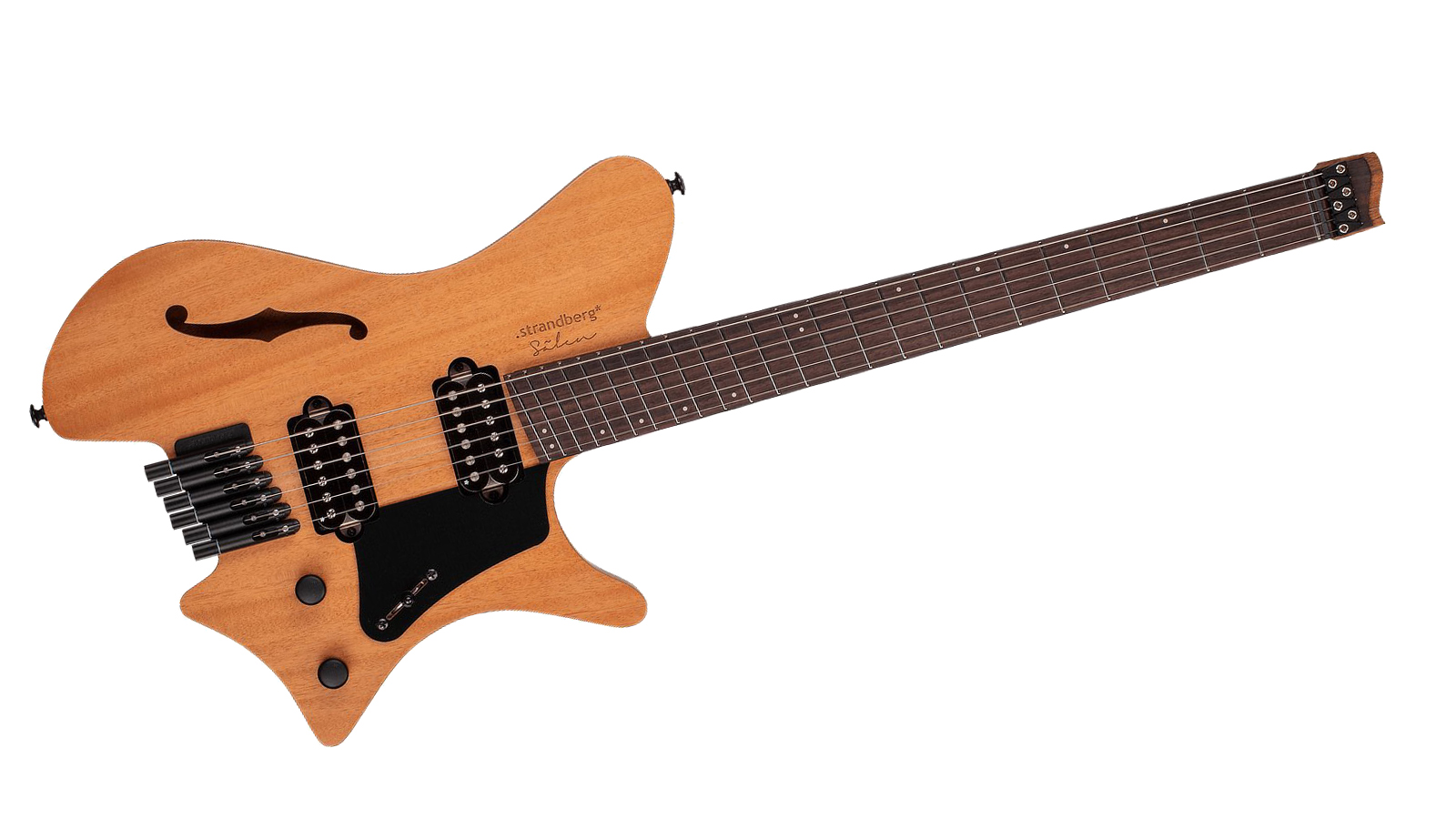
9. Strandberg Salen Jazz NX
Our expert review:
Specifications
Reasons to buy
Reasons to avoid
Although the youngest brand on this list by quite some way, in its relatively short life Strandberg has been a hive of innovation. Rethinking and redesigning the electric guitar neck, for one, is a fairly bold statement of intent - and they're onto something.
The Salen is inspired in looks by a certain single cutaway guitar created by Fender in the early '50s - and although the Salen is about as close as you'll get to a solidbody guitar in this list, that's where the similarities end. The 'Jazz' iteration of the Salen features two Strandberg MF Classic humbuckers, which provide a huge wealth of tonal capabilities, from clean and low-gain delicacy to roaring high-gain response. The semi-hollowness of this design allows for a much more open and mid-heavy tone to come out, all while keeping the feedback-killing properties of a solidbody guitar.
Strandberg is responsible for one of the most radical, yet ingenious guitar innovations we've seen in decades. Christened the 'EndurNeck', this is a neck profile which makes ergonomic, painless playing something truly achievable. It took us some getting used to, but the flat spot on the neck really makes sense after an hour or so of playing. It's positioned so that your playing style remains how you like it, but it also nudges you onto the path of comfortable, efficient playing. If you're willing to try something new, then you need to play one of these.
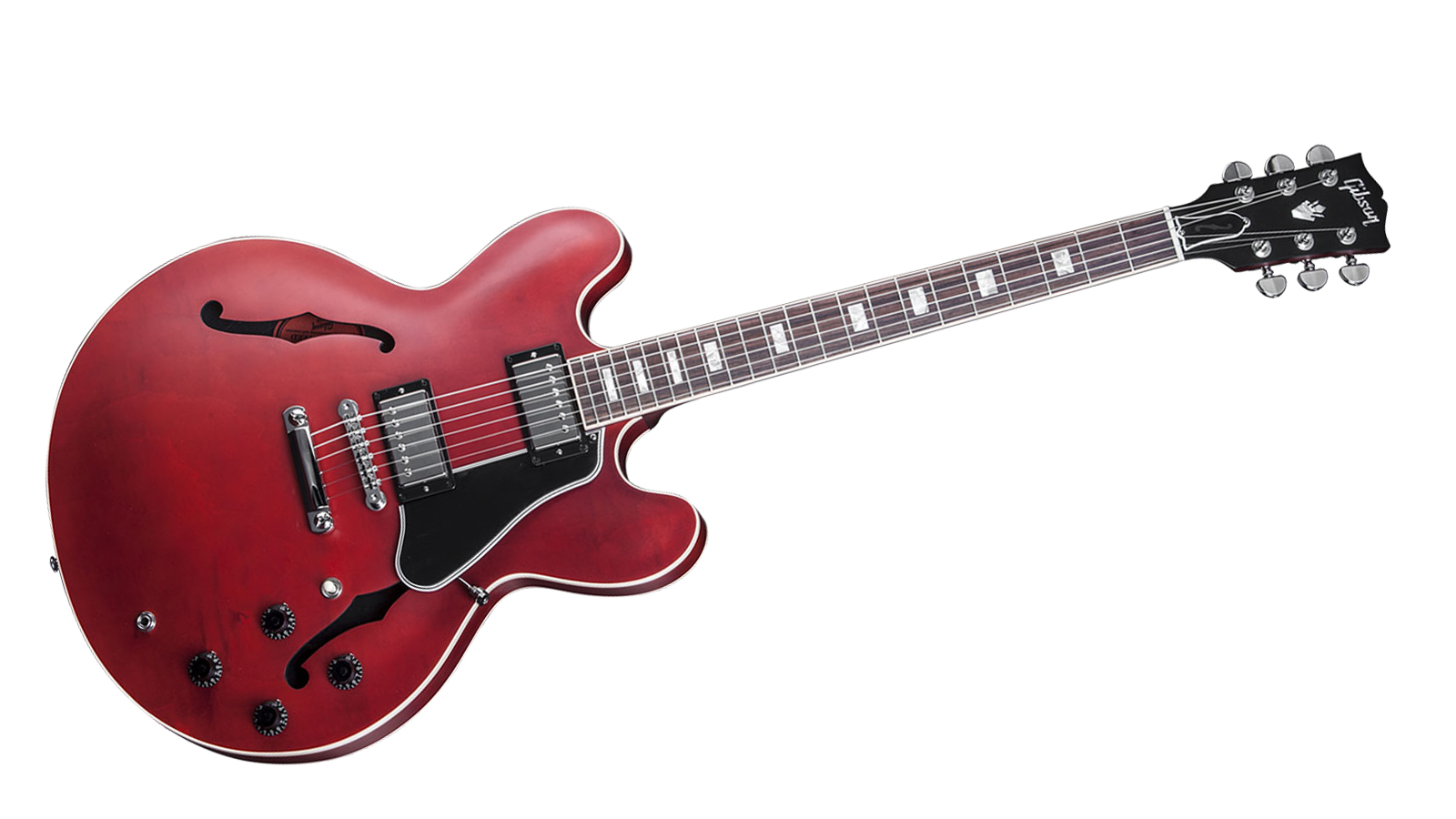
10. Gibson ES-335 Satin
Our expert review:
Specifications
Reasons to buy
Reasons to avoid
The Gibson ES-335 is by far the most iconic of all semi-hollow guitars. Since its inception, the ES (Electric Spanish) range has forged the path that all other semi-hollow guitars have followed. This Satin range of 335s offers vintage vibe, modern reliability and a tone we all love.
This 335 is a collection of high-end tonewoods. The body of this guitar is made from a 3-ply construction of maple and poplar, with a maple centreblock and a premium mahogany neck making up the rest of the wrap sheet. These tonewoods go together to deliver a sweet, balanced tone which has as much top-end as it does low-end warmth. The pickups - two T-Type humbuckers - are mounted into the hard maple centreblock, which not only gives them a stable mounting spot, but also helps to produce that classic rock 'n' roll bite in the tone. The neck pickup, much like other dual-'bucker Gibson guitars, excels both with and without gain, depending on what you're after.
This guitar is, essentially, an ode to the classics with a few twists. The hardware and overall build quality, you'll be pleased to know, has stayed impressive - and with modern engineering and guitar building techniques, it's also grown and developed. Playing a 335 is a difficult experience to explain. It feels old-but-new, classic-but-modern, and calm-yet-crazy. For the price tag, we'd have liked a little bit more from Gibson - perhaps a set of PAFs or a more ornate finish - but we can't really fault this 335.
Read the full Gibson Memphis ES-335 Satin review
Best semi-hollow guitars: Buying advice
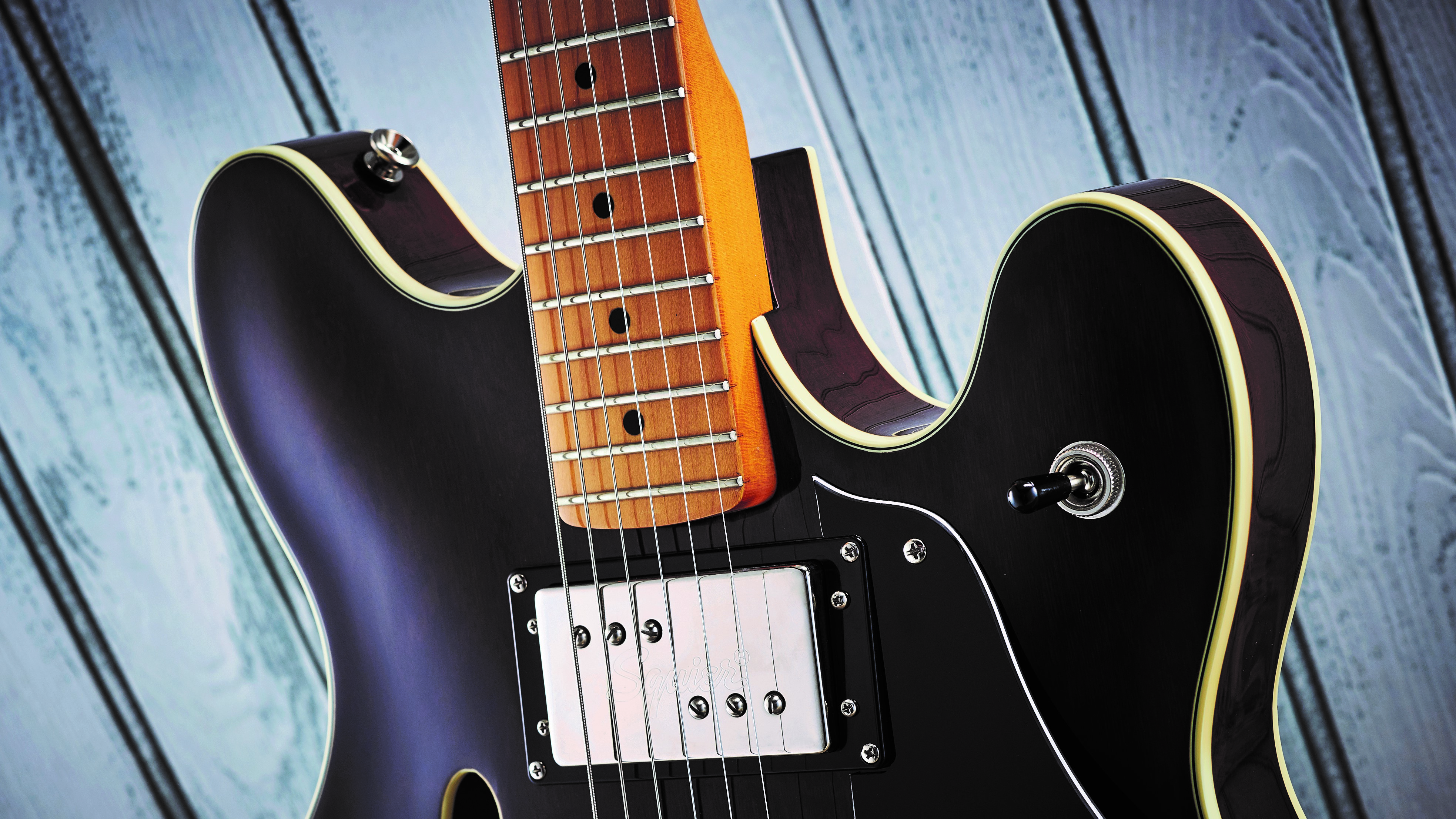
What is a semi-hollow guitar?
MusicRadar's got your back
A semi-hollow guitar, as you can probably deduce from the name, is an electric guitar that is not entirely hollow. Like a hollowbody guitar, they often feature f-holes and produce a warm, rich tone with acoustic-like qualities, but unlike a hollowbody, a semi-hollow electric guitar has a centreblock which is connected to both the top and back of the guitar.
Not only does the centreblock produce a solid mounting spot for the pickups and bridge and a little more structural strength, but also helps to reduce the amount of feedback your guitar may produce when playing at high volumes. This is because the centreblock essentially acts as sound absorption, and stops air from bouncing around inside the guitar like it would in a fully hollow guitar.
What genres are semi-hollow guitars good for?
While semi-hollow guitars are most often seen in the hands of Blues and Jazz icons, they are underrated, highly versatile guitars that can handle most genres.
Semi-hollow guitars do excel with a clean tone and a touch of reverb, thanks to their added low-end warmth and resonance - attributed to the larger body and the air reverberating inside - but when you incorporate a bit of gain into your tone, everything becomes accentuated. A semi-hollow guitar has a greater frequency response than a solid-body guitar, and when these extra frequencies are combined with the harmonic excitement of a bit of overdrive, you’ve got an instrument that will provide a huge, rich tone. Paired with the right pickups, and you’ll even get some mean grunt out of your bridge pickup, a la Dave Grohl.
Much like a full hollowbody guitar, the extra air inside the body makes a semi-hollow guitar quite a volatile thing when you crank up the volume or gain. This is counteracted by the centreblock, which kills the feedback - allowing you to play ‘on the edge’ with a little more confidence.
As a result, semi-hollow guitars are great for heavier styles as well as the more clean-focussed styles of jazz, soul, blues and funk. They might not cope well with really extreme styles of metal, but they don’t exactly have the quintessential ‘metal’ look, either - so this isn’t really an issue.
Do I need to use an amp with a semi-hollow guitar?
The short answer here is yes. Semi-hollow guitars might also be referred to sometimes as ‘semi-acoustic’ - but this only refers to the hollowness of the body, similar to an acoustic guitar. Like any guitar, it’ll still make a noise if you play it without a guitar amp, but in order to get the best out of your semi-hollow guitar you’ll need to plug it in. It’s still an electric guitar at the end of the day, and hearing the tone from those pickups will be much more rewarding than playing it unplugged.
Granted, a semi-hollow guitar will be louder than a solid one when played without an amp, so practising without an amp is fairly common, and can even help you improve the cleanliness of your playing. As soon as you start jamming or rehearsing with other people however, you’ll want to plug in and turn up the volume a bit.
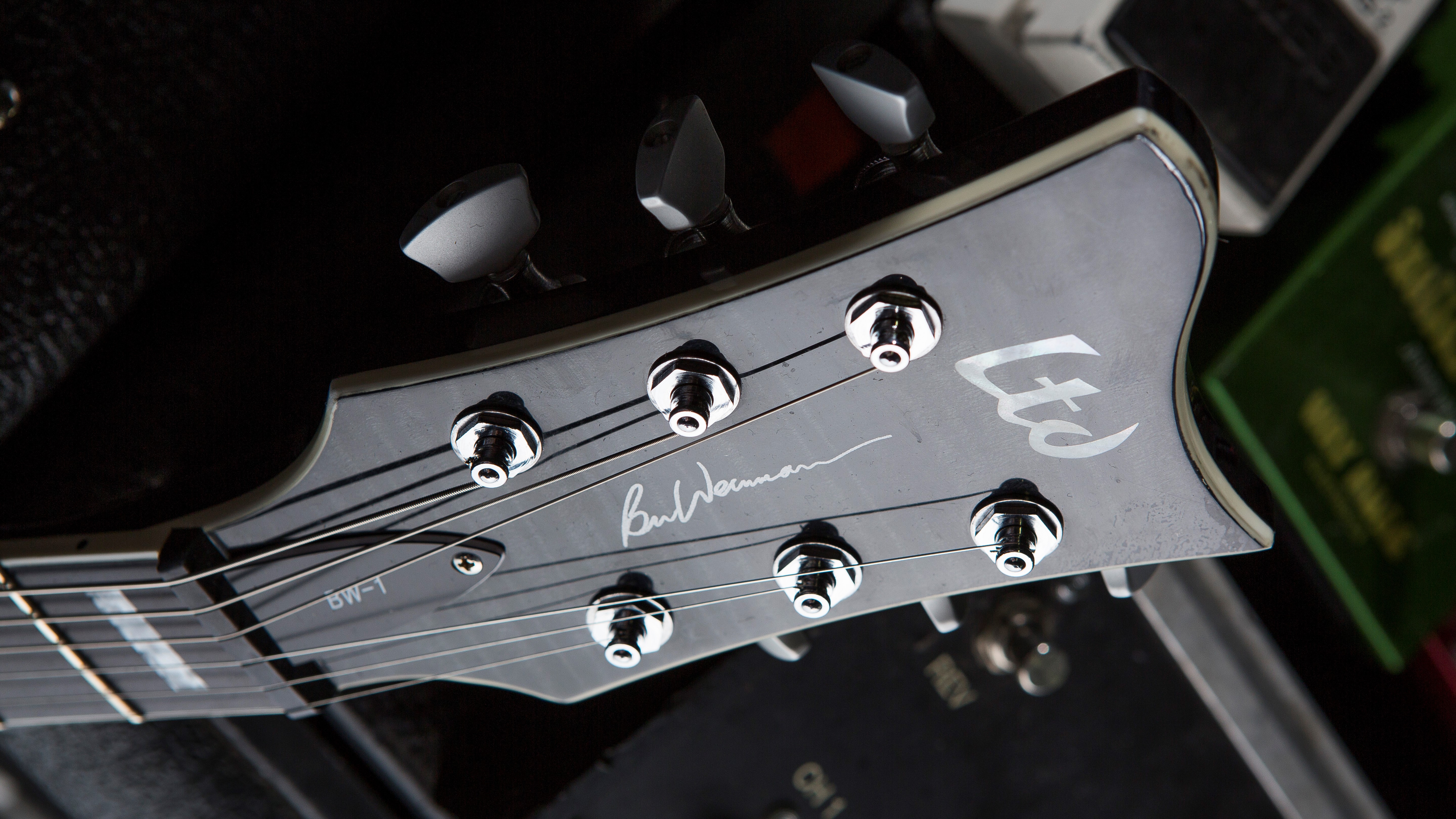
Which brands make the best semi-hollow guitars?
Nearly every guitar brand has made a semi-hollow guitar in their time, but some are just that bit better than others. This may be down to pedigree of the brand, the players that have adopted a guitar or brand, or just sheer intrigue. Most of the time, if a brand makes good solidbody guitars, then they’ll make good semi-hollow guitars too.
The brand most well known for their semi-hollow guitars has to be Gibson. The ES-335 is one of - if not the - most iconic semi-hollow guitars to ever exist, and the roster of artists that use one only solidifies its status as the most famous. There are brands that make better, more high-quality instruments, but the most memorable and iconic brand has to be Gibson.
If you want top-quality performance and pedigree but without the Gibson name, then Yamaha’s semi-hollow guitars are worth your attention. The SA2200 is one of the most impressive semi-hollow guitars on the market, with a build quality and attention to detail which outdoes all the competition at that price point. Yamaha is a company which has its whole reputation built on impressive sound and build quality, as well as precision engineering - so you know you’ll be getting a great guitar regardless of the price point.
Brands such as Guild and Gretsch also make some of the very best semi-hollow guitars. Both brands have a long and rich history of making these sorts of instruments, with many country and rockabilly players opting for either of the two brands as a vehicle for their tone. Gretsch guitars often have a brighter, more ‘bitey’ tone to them thanks to their pickups, and Guild’s pickups of choice tend to be a little smoother and warmer sounding. Both brands are now currently owned by Fender, and while they still make a wide range of high-end guitars, their cheaper, budget-friendly ranges are more popular than ever.
If you’re someone who appreciates innovation and modern technology, but still wants an old-school sound, then Strandberg is a brand you’ll want to pay close attention to. While their semi-hollow range is very limited (to one model), the Salen Jazz is an exceptional guitar. It’s comfortable, well-balanced due to its headlessness, and the EndurNeck profile waves goodbye to wrist pain and uncomfortable playing experiences. LTD also manages to blend the classic and modern worlds in the BW1, adopting modern technologies like Fishman Fluence pickups and an Evertune bridge while keeping the old-school mahogany and maple combination.
Find out more about how we test music gear and services at MusicRadar.
Related buying guides
- Go full acoustic with the best acoustic guitars
- Just starting out? Take a look at the best guitars for beginners
- Or the best beginner electric guitars
- Do things on a budget with the best Squier guitars
- On a budget? These are the best cheap electric guitars
- These are the best rock guitars
- And these are the best blues guitars
- Or put a name on it with the best signature guitars
- Be cooler than everyone else with the best jazz guitars
Get the MusicRadar Newsletter
Want all the hottest music and gear news, reviews, deals, features and more, direct to your inbox? Sign up here.
James is a freelance writer and former Junior Deals Writer at MusicRadar. Before writing, James worked as a guitar salesman at a local music store, so he knows a thing or two about matching people with their perfect instruments. James also has experience working in other areas of the music trade, having worked for the online music distributor, RouteNote. James is a guitarist, bassist and drummer and has also toured the UK and Europe with his old band Hypophora.
“Its mission is simple: unleash the power of any amplifier or line-level source without compromise”: Two Notes promises a “watershed” in tube amp control with the Torpedo Reload II
MusicRadar deals of the week: Enjoy a mind-blowing $600 off a full-fat Gibson Les Paul, £500 off Kirk Hammett's Epiphone Greeny, and so much more
